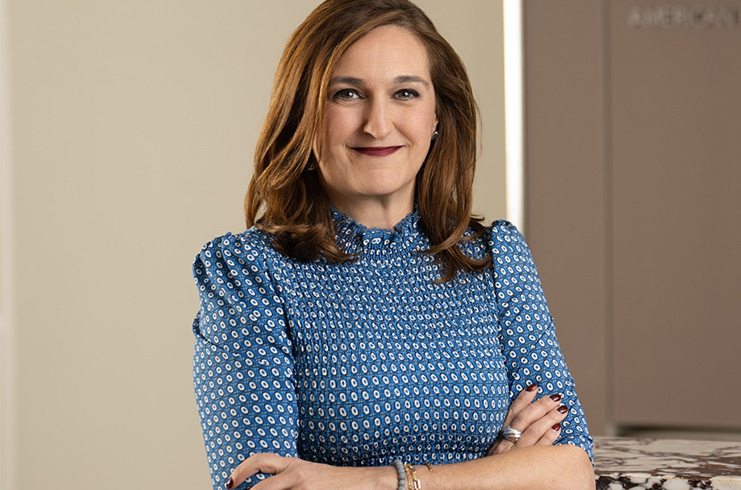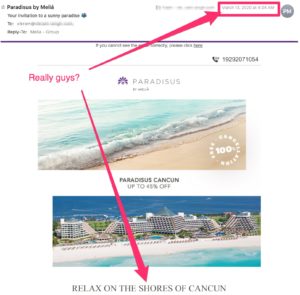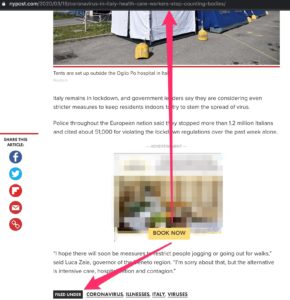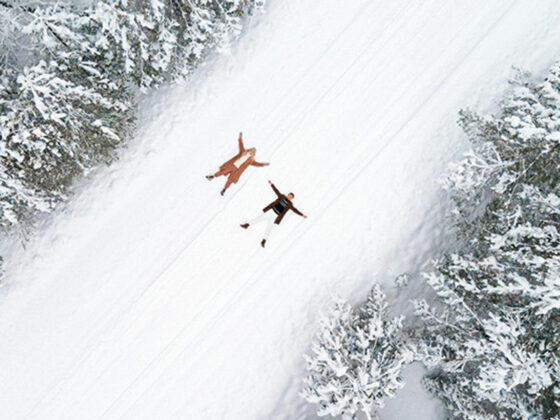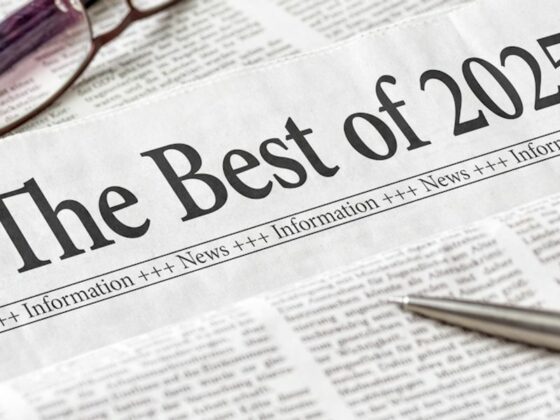As I write my first article during a global pandemic, my title inspiration comes from the Columbian literary superstar, Gabriel García Márquez. COVID-19 has rapidly decimated the industry I have worked in for over 20 years. There have been hardships before, but this one seems darker and more insidious than anything we have seen before. Nobody knows exactly what lies ahead, but the current reality is that thousands of our hospitality industry colleagues – many in my own personal network – have lost their livelihood or taken huge cutbacks in compensation and benefits.
March was a month filled with bad news that was staggered by geo-location, as my client base lies across varied geographies and asset types. The last of the hotel assets in my portfolio closed down on April 1. As most business comes to a grinding halt with everyone in quarantine, it has become a time for deep reflection and reconnection. I have had the chance to speak with many of my industry friends who are reeling from the effects.
With the world in quarantine, I have been surprised to see many hospitality vendors already posting their “recovery and marketing guides,” as if this is a just another minor hiccup and we are weeks/months away from business as usual. It is simply irresponsible to package a pandemic into a how-to guide. One of my close friends, industry legend Martin Soler, coined a term for this: vendsplaining.*
Vendsplaining (noun): When a hotel marketing/software vendor takes a complex problem – with specific implications for each individual client – and reduces it to a simplified “issue” that their one-size-fits-all proprietary guide or tool can solve.
That term quickly inspired me to come up with my own term: vendcast.**
Vendcast (noun): A webcast sponsored by one or more hotel marketing vendors that addresses problems faced by hotels by offering regional or generalized strategies and tools.
* I have obtained Martin’s permission to use this word at every given opportunity.
**At the time of writing this, there are about seven vendcasts in progress, in which the vendors are vendsplaining how to beat the pandemic with a perfect plan/guide.
There is a ton of speculation on recovery timelines. I will not be doing that in this article, in case that is what you were looking for. But the one thing everyone can agree on is that a fundamental shift is inevitable in the way we operate hotels, restaurants, and airlines and plan our travel. This article is a summation of my thoughts on how things can and should change. Many of these thoughts arose from time I spent on calls with travel industry friends, ranging from Jedi masters, asset managers, investors, clients, and…vendors who don’t vendsplain (yes, they do exist!). I am focusing on the two areas of the travel business in which I have been professionally engaged for two decades: Revenue Optimization and Marketing.
There Will Be Blood
First things first. Nobody is coming out of this unscathed. From a remote four-room inn to the 650-room big box brand hotel across from the convention center in a major city, every property will be affected. I have seen articles from some so-called experts calling this “a swing of the pendulum.” That’s incorrect, as this is more a swing of the axe. No matter what the recovery timetable ends up being in the end…people and corporations across the globe are recognizing inefficiencies in how they conducted business before the global shutdown.
Here are some of the major travel industry players taking a direct hit:
In summary, there is no AI-powered pricing software, content strategy, or digital marketing ad campaign that can help hotels recover revenue quickly. Acceptance of loss has to be the first step in what looks to be a slow recovery. Anyone offering a swift hack to get everything back to business as usual should be avoided, like the coronavirus itself.
Hotel Revenue Management: What’s Next?
Some revenue optimization basics are always prudent, but all strategies need be tailored to your location, as well as regional and global financial trends. Pricing is crucial but your product still has to deliver corresponding value. Amenities like breakfast, upgrades, etc. will be more relevant than ever. So letʻs not forget the basics: your databases, room types, distribution mix, and most of all your offering all impact your profitability. What I have outlined below are some broader changes that may be coming into play over the next several months and years.
The Ides of March
2019, which now seems like so many years ago, was a good year for most hotels worldwide. To quote Dickens: “It was the best of times, it was the worst of times.” Why? Because the RevPar growth was already slowing down following the recovery from our last financial meltdown in 2008.
The warning signs pointing toward the end of boom cycle for travel were already there. In addition to it being an election year in the US, recession was already on the lips of many finance world soothsayers, warning us of imminent decline at the end of a growth cycle.
Asset managers, owners and operators worldwide were chasing ADR growth for 2019, as it was the only way to increase profits. But that was easier said than done. Why?
- New demand in the market was nicely met by all the new hotels going online. This made it harder for the established hotels to pull in big ADR numbers.
- Rate of inflation was higher than the ADR growth, which in simple terms means “it got more expensive to run a hotel.” Rising costs can eat into your profits real quick, and that is where the majority of hotels were losing money. Payroll expenses kept going up.
The general forecast for 2020 from top industry sources like STR and Phocuswright was never super rosy to begin with. A major correction in rates was already under way before the pandemic in markets like Seattle, Houston, Boston, etc. Markets were dealing with their own issues. Case in point: San Francisco was reeling from negative press, interactive street poop maps, and loss of major conventions (Oracle Open World) due to high ADR’s and “poor street conditions.”
We have a tendency to look back at the “good old days.” I want to make sure we stay cognizant of the fact that signs of the slowdown were everywhere…we were at the end of the 10-year growth cycle. But nobody expected 2020 to fall off the cliff like it did.
When people eventually start traveling again, the comeback will be slow and painful for a lot of hotels. As a revenue optimization professional, I foresee some long hours ahead on the road to recovery. As I look into the future, talk with my colleagues and make notes on my trusted whiteboard, here are some things I can see changing for our industry.
Goodbye, Non-Refundable Rates
You read that right. I think it is time to say goodbye to this incredibly tempting rate type, which the industry embraced during the good times. As a guest, nothing is more annoying than realizing after a change of plans (for a variety of valid reasons) that you booked a great deal at a hotel you are not going to visit anymore. Airlines are the kings of non-refundable fares; like everything else in revenue management that trickles down from airlines to hotels, we embraced it and made it a part of our industry. Check out the horrible press that Airbnb received for their complicated and confusing refund policies.
It is time for both independent and brand hotels to step away from this rate type and let people book with confidence. Taking people hostage with terms and conditions seems out of place in the world we are about to inherit. Recovery starts with flexibility and, yes, you can quote me:
“Recovery starts with flexibility.”
– Vikram Singh
We simply cannot take people’s wallets hostage anymore. A crisis like this presents the perfect opportunity to embrace flexibility and use it to build “brand loyalty,” something we all love to talk about but very few know how to transform into revenue.
Ending Direct Revenue Mania
This point will soon be published as its own lengthy article. It was slated to be my next topic before the outbreak. However, here is a very basic TLDR summary:
Over the past few years, there has been a certain fanaticism about Direct Revenue. Software and marketing vendors have made it their tag line. It has been cast as the holiest and purest of all revenue channels. The term “most profitable channel” has been used ad nauseam. I strongly believe that we need to make a slight correction here. Maybe chill out with the direct hyperbole, maybe do some meditation and yoga to relax?
The recovery, when it happens, will be one of the worst times to get picky about distribution costs and wage wars on your distribution partners. We already know that a massive correction is about to happen to hotels and their distribution mixes. Direct channel is and always will be important, nobody is arguing that but it is not free money. There is cost associated with it and it has its limitations when it comes to generating the volume of revenue it takes to make a profit.
Vendors with “I Love Direct” and “Direct or Die” facial tattoos will need to get off their high horses and walk a few miles to cool off. Let’s go back to the 80’s when Frankie say relax. Remember, direct revenue is not free money. The industry needs to come to terms with the costs that are associated with all channels. We cannot afford to tilt at windmills anymore. (It’s also a great time to read/reread El Ingenioso Hidalgo Don Quixote de la Mancha.) Obsession over an idea, no matter how noble, never ends well. You can quote me on this:
“Recovery will happen from all channels.”
– Vikram Singh
The Distribution Remix
Keeping in mind the unique recovery challenges associated with this pandemic, let’s take a brief look into the future. Groups and accounts associated with large meetings and conventions will likely take the longest time to come back. Corporate travel, which is traditionally the first one to bounce back, will also take more time based on the massive number of furloughs and layoffs. Hiring back always takes longer than taking an axe to the workforce.
Local drive markets will see the first signs of recovery. Eventually, the world will slowly but surely return to air travel, eager to meet family, friends and colleagues, and having forgotten about dirty airplanes, liquid bans, squalid airports, and the joys of TSA screenings. Maybe they will even cram themselves like sardines into basic economy fares to travel the globe. However, for the US market, incentivized in-state traffic will usher in the recovery, followed later by national and then international traffic.
For all your revenue management initiatives, remember that there has never been a more important time to be nice to your neighbors. I want you to read this with the Mister Rogers intro theme playing in your head.
The End of Resort Fees
I don’t think any two words have invoked a more venomous reaction from hotel guests over the last two decades than “Resort Fees” (aka: Urban Fees, Facility Fees, Destination Fees, Resort Charge, etc). A fee by any other name would be equally notorious. Critics of the fee have called it the “most deceptive and unfair pricing practice in the hotel industry.” It allows hotels to advertise a low rate and then ask for more money at check-in, even if the guest is not interested in using the amenities it supposedly covers. Even as a hotel revenue professional, it sounds pretty bad when I type it here. It’s basically drip pricing for hotels.
The resort fees trend started in the US (mid-1990’s) and has generated tremendous hate. How much hate are we talking here? I am glad you asked. So much that, as of this writing, 47 Attorneys General have opened an investigation into it. The most dramatic example was when Marriott Hotels was issued a subpoena by the Washington DC Attorney General for their non-cooperation.
In a most bizarre, almost surreal period in the travel business, the two top OTA’s are doing their part to “tackle resort fees” while major brands stay silent.
Expedia: They offer higher rankings to hotels not charging resort fees. Their official statement reads: “We know hotel-collected mandatory fees can be confusing to consumers, and we expect, among otherwise equivalent hotels, these changes will result in higher visibility on our sites for hotels not charging these fees.” In short, if you charge resort fees, Expedia will lower your rankings on their booking site and show guests a warning that you charge resort fees. Wow!.*
*In Owen Wilson’s voice. Please enjoy a 2-minute, 35-second compilation of him saying “wow”. You’re welcome.
Booking: It’s no surprise that in classic Booking.com fashion, they want a piece of the resort fees pie. They are including resort fees when calculating their commission. Official statement: “Hopefully, this will help continue to push the entire industry toward more transparency and fewer ‘surprises’ for customers.” 911, I would like to report a murderous sweet burn. If you can’t best them, make some money off of them in the name of transparency. Hey, nobody has ever accused Booking of not being great at making money. The fact that they used the word transparency is the ultimate atomic burn on our industry. Do kids still say atomic burn? Probably not, but you guys get the gist of it.
Post-pandemic recovery will be a great time for hotels (both brand and independent) to move away from drip pricing and give the guest confidence when they are booking their next trip. Big hotel brands like Marriott, Hyatt, Hilton and IHG have a tremendous opportunity right now take the lead on this. After all the complaints and articles about “evil OTA’s” stealing their customers, how can major brands let them lead the charge on transparent pricing? Are we awake, or is this a dream inside a dream inside another dream? Can someone please start playing Edith Piaf and give me an inception kick?
Brands need to show that they really care about their customers beyond sending everyone in their database a COVID-19 email, or posting videos of their CEO in tears, or yelling at them to “BOOK DIRECT” via expensive well-paid celebrities. An opportunity to take the lead has landed on the laps of the most powerful decision-makers in the hospitality industry. Please, let’s do the right thing.
Hotel Marketing: What’s Next?
As with revenue management, winds of change have been blowing in the marketing landscape for a while. All hotel websites look the same, everyone has a drone video, hotel ads look the same, all are inviting us to book direct and save, most mobile booking experience sucks, all have a best rate guarantee and, finally, all hotels are offering 20%- 40% off their best available rates in their email blasts.
A complete shutdown of non-essential travel is also the hard-reset button for hotel and travel marketing teams worldwide. This is the right time to start thinking about how you plan to be different when things get back online. Over the years, I have told hotels to:
Build Better Websites
Get Better Booking Engines
Stop Spending on “SEO”
Start Spending on Ads That Work
Stop Wasting Money on TripAdvisor
Send Better Emails
Have Better Hotel Events
Upgrade Their Success Metrics
Start Writing Better Content
Start Owning Digital Assets
Do Not Rent/Lease Websites
That’s enough content to publish a small book. Maybe I will one of these days. Until then, I encourage you to reread some the long-form content I have posted and get yourself mentally prepared for the changes ahead.
Here are a few other items I have been getting a lot of questions about.
You Can’t Growth Hack a Pandemic
The final stage of grief is acceptance. Let’s start there. A wide range of COVID-19 recovery strategy guides have already been published without any concrete “open for business” dates from the world’s governments. Based on the content produced so far, I can see that the mindset is still around how marketing is going to save the day. Example: Discount Gary Vee wannabes are busy posting “growth hacking” content that is completely detached from reality. This mindset might have partially worked after some of the other declines hotels have experienced in the past …but this is going to be different. As I write this, 16 million people in the US have lost their jobs.
The unemployment rate in the US is predicted to hit 15%, which is the highest number since the Second World War. It is irresponsible to spin a marketing guide sitting here in the month of April. Recovery will be hard and extremely hands-on. There is no road to a quick bounce-back, but there will be an eventual bounce-back. It is more important than ever not to oversimplify recovery. Observe and report. Recovery will start locally and expand out from there.
Right now, it’s better to start with some things that are long overdue for an overhaul.
Move Beyond Vendor Management
For most hotels, this a moment of real change. People with the word ‘marketing’ in their job title will have to start doing actual marketing work. There is simply no money left to pay employees for emailing/harassing vendors and then spending useless hours in marketing meetings. There are some very talented people out of work; your recovery will be based on the caliber of people you choose.
There is hope for those whose entire career has been vendor management…they just have to learn how to do actual work. The shutdown is a great time to expand your skills beyond doing marketing calls and playing email jockey.
Hands-on agencies will survive as they are doing the work for owners who are busy running the property. On the flip side, agencies collecting monthly fees from hotels that were sitting at 20% to 30% occupancy even before the pandemic hit… will simply not make it. The luxury of paying agencies thousands of dollars every month to change a few words and photos on your website and run a few Google Ads are over. Specially when you have “marketing and e-commerce” in your job title these expenses cannot be justified anymore. You either do marketing or get out the way of ownership to work with someone who does.
Stop Spending on “SEO”
I outlined how the Hotel SEO Bubble burst back in 2013. If it is still going to appear in your agency invoices as a line item when you re-open…then Houston, we have a big problem. Google is great, but it is not your friend and owes you nothing. Google is here to sell ads and make money. If you keep your website healthy, lightning fast, and usable on mobile, and keep your Google my business listing current, then you will be fine.
Content, site speed and mobile usability reign supreme. Chasing rankings in 2020 and touting organic search results is the ultimate hipster move. Riding a unicycle in a bike race is cool but you will never win. It’s a great time to ask yourself what you are paying for and how you can migrate that cash over to something useful, like paid ads or content production.
Pause Paid Advertising for Now
When your hotel is closed, it is ok to pause your ads. Yes, this 100% includes brand name campaigns in Google and all metasearch campaigns. Agencies/vendors that are telling you that “cost per click” in the market is low should use use their time in quarantine to learn demand and supply 101. Please email them this list of classes to take.
Nobody is booking travel right now, and therefore the cost is low. This should not be packaged as a great opportunity to capture some future pie in the sky business. If there are no surfers in the ocean, then it is very likely that there are no good waves to be ridden or that a shark alert has been issued. When in doubt, don’t go out. (And just like that, I get to use a reference from my home in Hawaii.)
Don’t panic and fall for the whole engagement sales pitch. Take a deep breath. Is your website still running well? Google Business Listing updated? Good, now wait until we get an open for business date. Please don’t wave ads in people’s faces while they are locked down. It is annoying and in no way an inspiration for them to book travel.
Cash is tight, so please take care of your employees first. They will be crucial when the recovery starts. Google and others will take your money anytime…it’s like their favorite thing to do, every day. Also, if you are still clinging to TripAdvisor ads, it’s ok to let go now and reallocate your budgets.
Relax With Social Media
The road to social media is paved with disaster. It’s ok to tone it down and take a health break from it. There is nothing you need say on Twitter/Facebook/Instagram that is crucial to the recovery. I wrote in detail about influencers in my last post. This is the perfect opportunity to consciously uncouple from influencers and focus on taking care of your employees, neighbors, and communities. (I saw an article that highlighted “charitable acts as great hotel branding opportunities”. I rolled my eyes so far that they were stuck behind my head for a while.)
Please don’t succumb to the hubris that you need to entertain people on your hotel social media accounts while they are getting laid off and face an uncertain future. Leave that to Netflix/Amazon/Hulu, etc. ICYMI Here are some things that already have caused a terrible backlash on social:
In short: Avoid the urge to post at this time. When things open again, you can get back to posting “healing and inspirational photos” in no time. Just because you have a microphone does not mean you have to say something all the time.
Take It Easy With Email & CRM
I think everyone and their brother has already sent out a COVID-19 email. A company I brought a paper clip from in 1999 recently emailed me about their concern for my well-being. Every single hotel brand, including the one I stayed with once in 1995 (25 years ago), sent me an email. Idea: Instead of blasting your entire database you are better off putting your message on your home page and reserving email to communicate with people who have booked a stay with you.
Oh, remember the hotel group that sent me 60+ promo emails in a year? Guess what? They never stopped and were pushing a 45% Relax On Shores Of Cancun vacation to me in Hawaii late into the lockdown in the middle of March. You simply cannot make this stuff up!
Time to Retire Retargeting
I am going to keep this short and sweet. Retargeting was never cool and has always been annoying to your guests. It was nothing more than a violation of privacy that they let slide in the name of convenience. I had been planning to write something more detailed to make my point. But sometimes things just land in your lap and you close the case. A single image can deliver more power than a thousand words. In my case, make it 3000 words (my average article).
Banner ads for hotels and travel companies have been showing up in articles about mass graves and medical supply shortages! One in particular as hit me hard as I was reading about how doctors in Italy had stopped counting dead bodies. Lo and behold, there was an ad for a hotel brand with a BOOK NOW call to action. Again, you cannot make this stuff up:
Let’s take this opportunity to stop paying for retargeting. This is a marketing idea whose time has passed. Say your goodbyes.
Conclusion: Skilled Teams Will Lead the Recovery
If you are still reading this, I saved the best for last, just for you. Let’s start with an excerpt from one of the greatest stories ever told:
“I wish it need not have happened in my time,” said Frodo.
“So do I,” said Gandalf, “and so do all who live to see such times. But that is not for them to decide. All we have to decide is what to do with the time that is given us.”– J.R.R. Tolkien, The Fellowship of the Ring
The recovery will happen. Speculating on its timeline is a waste of time. I refuse to speculate when there is still so much work to be done in our industry.
We have a massive challenge ahead of us, no question. Recovery efforts will be further complicated by the limited resources we will be left with after the shutdown. One resource that is going to be more crucial than ever is good people. Your success will depend on who you choose work with when we get back to business. The silos of revenue, marketing, and operations need to come tumbling down. From their rubble will rise the superhero recovery teams (minus the capes and spandex of course). The gap between the A-team players and everyone else is going to get bigger. Smaller, smarter and nimbler teams will shine.
Right now, we hold steady, think about the future, and wait for the safe time to start again. And remember: quarantine is temporary, but Wu-Tang is forever!

